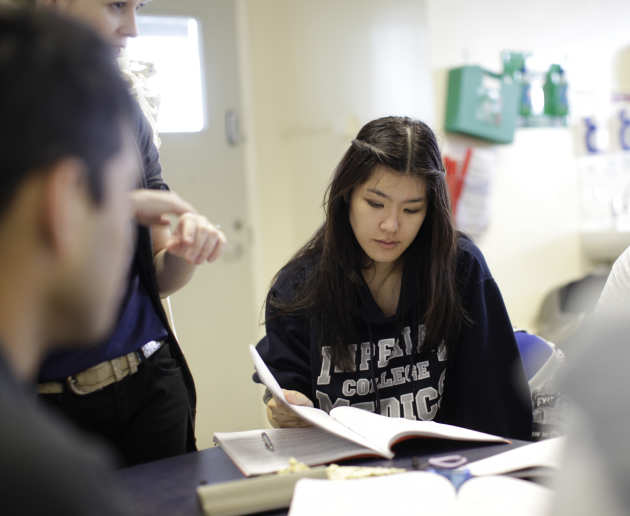
The key to any exam is preparation. You can make sure you get the best grade possible by planning ahead.
Before the exam
Being prepared for your exams isn’t just about revision.
- Check times, dates, and locations well in advance. Your exam may be in an unfamiliar location – You may even want to do a trial run of your journey beforehand to be safe.
- Eat sensibly and get a good night’s sleep before your exam.
- Make sure you have everything you need for your exam – pens, pencils, any permitted books, a calculator (if permitted) and your student card.
- Try not to think or talk about the exam too much before it starts. This will help to reduce tension.
In the exam
Do
- Bring your student ID – you’ll need to display it face up on your desk so the invigilators know you’re the right person sitting the exam.
- Check the front cover of the exam paper to make sure you’re taking the right examination.
- Listen carefully to any announcements from the invigilators and remain seated at all times. If you have a query, feel unwell or need to use the toilet, raise your hand to get the attention of an invigilator.
- Ensure that your details have been completed on each answer book.
- Read the instructions carefully. It may sound obvious, but important information about the number of questions you need to answer and how long you should spend on each one will be given to you in the instructions. Don’t let yourself be that student who didn’t turn over the exam paper and thought there was only one question.
- Unless told otherwise, you don’t need to stick to the numerical order of the questions. If you think you’d rather answer the questions in a different order, feel free to do so.
- Allow yourself an appropriate amount of time for each question.
- When answering essay questions, focus on answering the question. It’s easy to go off-topic if you don’t plan ahead, so prepare a structure for your answer in advance.
- You might find it helpful to plan all your answers at the start of the exam, while your mind is fresh.
- Ensure your writing is legible. You might have written the best answer ever, but if it’s an indecipherable scrawl then you won’t get your deserved marks.
- If time allows, go back and check your work.
- If you find that you’re running out of time and still have some answers to write, try to give an outline for how you would answer the question – you’ll get more marks for the attempt than you will for leaving a blank page.
- Stay calm - It’s possible that you’ll find yourself feeling stressed and panicky during an exam, even if you normally wouldn’t - if you start to panic, close your eyes and wait until you feel calmer.
Don't
- Unless told otherwise, don’t bring any notes or materials into the exam hall – this could get you disqualified.
- Don’t open the question paper until you are told to do so by an invigilator.
- Don’t bring prohibited items to the exam – this includes your phone, smart watch, or any other electronic devices.
- Avoid leaving the exam early. Even if you’ve finished answering all of the questions, it can be useful to go back and read through all of your answers and make sure you’ve answered all of the questions. There’s always something you can do to improve an answer!
- Don't communicate with anyone else in the exam except for the invigilator, and wait until you’re outside of the exam venue to talk to anyone else.
- Don't continue to write after it has been announced the exam has finished – this could get you disqualified.
- Don’t run out of time – managing your time in the exam is vital so try and work out how much time to spend on each question and stick to it. Don’t focus on perfecting an answer that will gain you five marks at the expense of running out of time for a fifty-mark question!
- Don’t worry about your neighbours. They may be scribbling away furiously but that doesn’t mean they’re getting it right.
- Don't be late! If you arrive late for an exam, you should go straight to the invigilator and explain your reason. You may still be able to sit the paper.
- Don't take the exam paper or any used/ unused answer booklets away with you – you’ll need to wait at your desk until these have been collected by an invigilator.
After the exam
When the exam is over and you’re out of the room, avoid the temptation to examine your performance and compare your answers with your fellow students. You can’t change your answers now, and you’ve probably got another exam to prepare for.
Feedback isn’t always provided after exams and while stressing over answers is not helpful in the long run, it can sometimes be helpful to go back to material related to the questions you struggled with for your own learning. Sometimes class feedback on examinations is provided, and it can be useful to incorporate this feedback into preparation for your next examinations.
It is worth spending a little time thinking about how you could improve your exam technique for the future. Did you allow enough time for each question? Was there anything you would have done differently?
Once all your exams are over, you can analyse your overall revision and exam techniques. Did your revision techniques work for you? Did other students use techniques you might find useful?
Remember the Imperial College Union Advice Centre also provides a range of advice about academic matters, such as appeals against exam marks.

